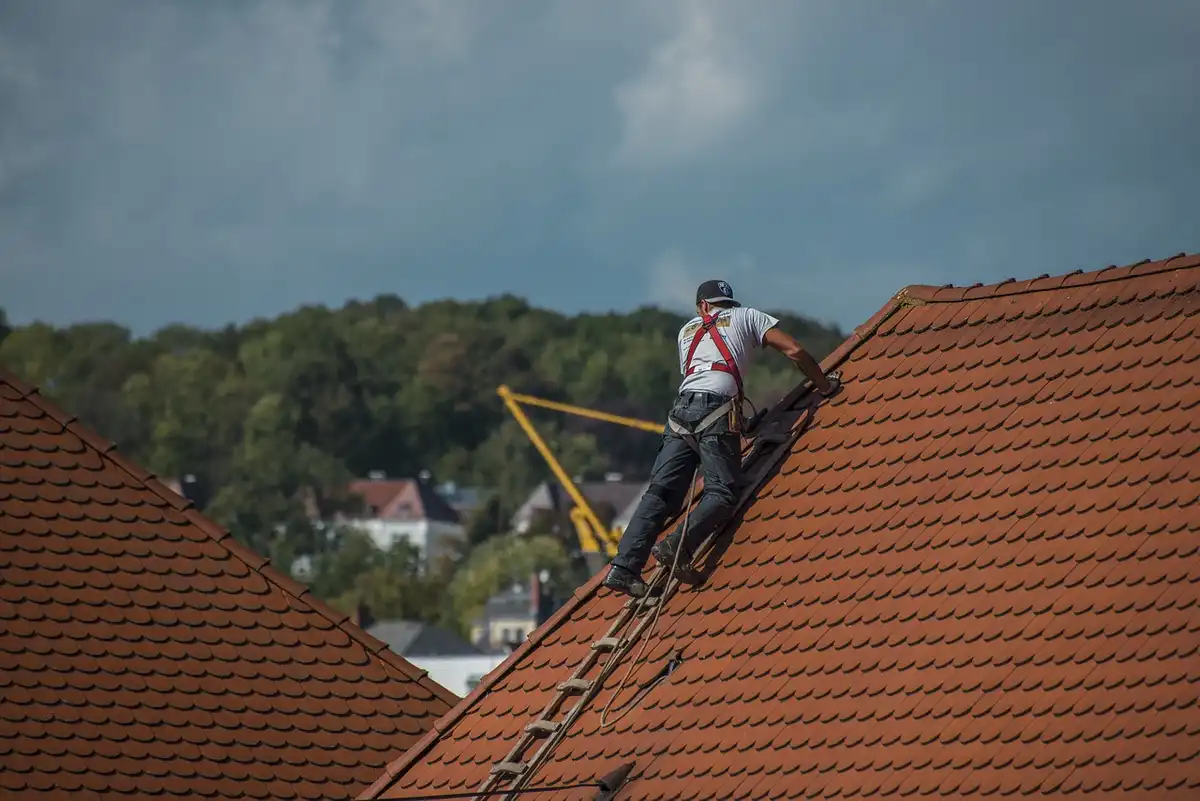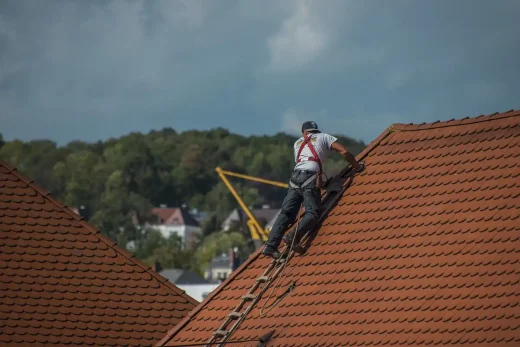Top 8 questions to ask a roofing contractor, roof repair contractor, Building home maintenance
Top 8 Questions to Ask a Roofing Contractor
7 January 2025
Looking to hire a roofing contractor? Choosing the right person for the job is critical, impacting your home’s integrity and value. You ideally need answers to certain pivotal questions before making a decision.
Cascade Roofing summarizes the top 8 questions you must ask a potential roofing contractor. Their insightful suggestions can help vet candidates effectively, ensuring they meet your expectations, quality standards, and budget.
Be an informed customer! Dive into these critical inquiries that range from their licensing to warranty policies. Utilize them during your search to confidently hire a competent and trustworthy roofing professional.
Experience and Track Record
When seeking a roofing contractor, their experience and track record offer a reliable measure of their competence. You need to find out their local reputation—a good one means they’re likely to deliver high-quality work.
Local references: Ask for recent customer testimonials. Positive feedback asserts their credibility.
Licenses, certifications, and insurance: Confirm that the contractor is certified and insured, adhering to your state’s standards. This covers unforeseen accidents or potential property damage.
Better Business Bureau rating: Verify the contractor’s rating to understand their business behavior and integrity.
Avoid just any contractor; go for those with at least five years of experience. Pick a certified installer for quality product warranties; they hold required proficiency as suggested by reputable brands like Owens Corning and GAF.
Owens Corning provides a 50-year warranty on its premium products if installed by a preferred contractor, emphasizing the significance of correct installation.
Every roofing product has a unique installation process; ensure your chosen contractor is well-versed with your specific selection. The contractor’s skills should align with the specifics of your selected roofing elements for optimal results.
Types of Roofing Services
If you have roofing needs, it’s crucial to understand the variety of services available. These professional offerings can range from inspections and repairs to replacements.
Your home’s roof is exposed to the elements 24/7, making regular roofing inspections an absolute necessity. An inspection can identify potential issues before they escalate.
Roof repairs come into play when there’s minor damage or issues with your roof. Instead of an entirely new roof, a patch-up job might be enough.
Sometimes, you might need a complete roof restoration. This service gives your roof a facelift and restores its functionality without replacing the entire structure.
Roofing Inspections: Determines the magnitude of potential problems.
Roof Repairs: Addresses minor damages efficiently.
Roof Restoration: Enhances both look and functionality.
Roof Replacement: Necessary for roofs with extensive damage or at the end of their lifespan.
Roof replacements are typically more costly but sometimes unavoidable. When your roof has extensive damage or reached its life expectancy, replacement becomes necessary.
The type of roofing service required largely depends on the state of your current roof and your future plans for the property it covers.
Licensing and Insurance
When hiring a roofing contractor, it’s crucial to consider their licensing and insurance status.
General Liability Insurance safeguards contractors from amounts they have to pay due to damages or medical payments linked to their work, while Workers’ Compensation provides benefits to employees who bear work-related injuries or illnesses.
Mandatory General Liability Insurance: This insurance covers property damage and non-worker injuries during roofing projects, offering financial protection against damages caused during their work. (source)
Additional Insurance Requirements: In areas like California, licensed contractors must carry contractor license bonds worth $25,000. Additional insurance requirements depend on the specific licensure type the contractor holds.
Licensing for Roofing Contractors: The process varies by state. For instance, Michigan requires a credit check, background history, and a comprehensive test alongside a builder’s license.
You should thoroughly verify the licensing and insurance information of prospective roofing contractors. Your choice significantly affects your project outcome; hence, an insured and licensed contractor is a wise choice.
References and Client Testimonials
Due diligence is vital when finding a reliable roofing contractor. As Rico León suggests, consider the following factors:
Research Reviews: Prioritize contractors with abundant positive reviews.
Ask for References: Request recent references and inspect their completed projects.
Evaluate Problem-Solving Skills: Discuss potential challenges to assess their responses.
Use Escrow for Payments: Ensure your investment is safe until project milestones are met.
Insist on transparency and accountability from your contractor. A clear contract detailing the work, timeline, and costs prevents confusion.
Regular updates maintain open communication. Trust your instincts and ensure you feel comfortable working with your contractor.
Roofing Material Options
Alternative roofing materials are gaining attention for their ecological benefits and cost-effectiveness, offering enhanced durability and sustainability over traditional options.
Composite Roofing
Composite roofing utilizes polymers, fibers, and additives for impressive resistance against weathering, pests, and fires. Though it may require a larger initial investment, it offers long-term savings due to lower maintenance and replacement needs.
Recycled Materials
Made from reclaimed wood, rubber, or plastic, recycled materials provide an eco-friendly alternative, reducing waste and the need for raw resources.
Solar Tiles
Solar tiles combine photovoltaic technology with roofing, producing electricity while protecting your home. Despite their initial cost, tax credits and energy savings can offset the investment over time.
Risks Involved
Alternative materials may present challenges like higher upfront costs, supply chain disruptions, unique maintenance needs, and potential compliance issues with local building codes.
Necessity of Collaboration
Successful implementation requires collaboration among architects, contractors, suppliers, and homeowners. Focusing on sustainability and risk management helps build resilient structures that withstand environmental changes.
Project Timeline and Schedule
Embarking on a roofing project involves assessing its scale and forming a practical timeline. Begin with pre-construction tasks like acquiring permits, finalizing designs, and ordering materials, then proceed through demolition, construction, and installation.
Creating an Effective Schedule
Outline tasks, assign professionals, estimate durations considering factors like weather, and set start and end dates. Milestones such as permit approvals or structural work completion help track progress.
Weighing Contingencies
Factor in potential delays due to weather, material availability, or contractor schedules. Be prepared for adjustments and maintain flexibility to manage expectations effectively.
Warranty and Guarantees
There are several types of warranties to consider, including standard hard cost warranties, performance-based warranties, and wrap warranties.
Standard hard cost warranties cover specified costs for 1 to 5 years, while performance-based warranties, though costly, cover full performance risks. Wrap warranties provide all-inclusive coverage for the entire project, including soft costs.
| Type of Warranty | Duration | Benefit |
| Standard Hard Cost | 1 to 5 years | Defined costs covered |
| Performance Based | Costly but thorough | Covers full performance risks |
| Wrap Warranties | All-inclusive | Covers entire project |
| RWC Warranty Options | 10 years or more | Adds extended coverage beyond standard period |
Providers like RWC Warranty and Centex Homes offer extended coverage options, with RWC providing a 10-year new home warranty and Centex offering a 10-year limited structural warranty plus 5-year coverage on water infiltration and leaks.
Clear warranty documents are essential for setting expectations between builders and homeowners. They must detail what’s covered and the duration. Some warranties, like RWC’s, can be transferred to new homeowners without additional charges.
Detailed Written Estimate
A detailed cost estimate is crucial for accounting for all project costs. It should include rates, project specifications, material and labor costs, types of services, timelines, major milestones, and terms and conditions such as deposit amounts and payment terms.
An Independent Cost Estimator (ICE) can verify the general contractor’s pricing to ensure fairness. Your contractor should provide a comprehensive list of materials and clearly outline significant points in your construction timeline.
Your Final Step
Ensure you’ve gotten satisfactory answers to these crucial questions before hiring a roofing contractor. Remember, it’s your right to a professional service, accurate estimates, warranties, and above all, high-quality workmanship.
Comments on this guide to Top 8 Questions to Ask a Roofing Contractor article are welcome.
Roofing Articles
Roofing Posts
Flat roof repair

image source : pixabay.com
Insulation Options for Your Roof

image source : pexels.com
How to make your roofing company a success
Eco Architecture
Contemporary Green Architecture Design
Comments / photos for the Top 8 Questions to Ask a Roofing Contractor page welcome




